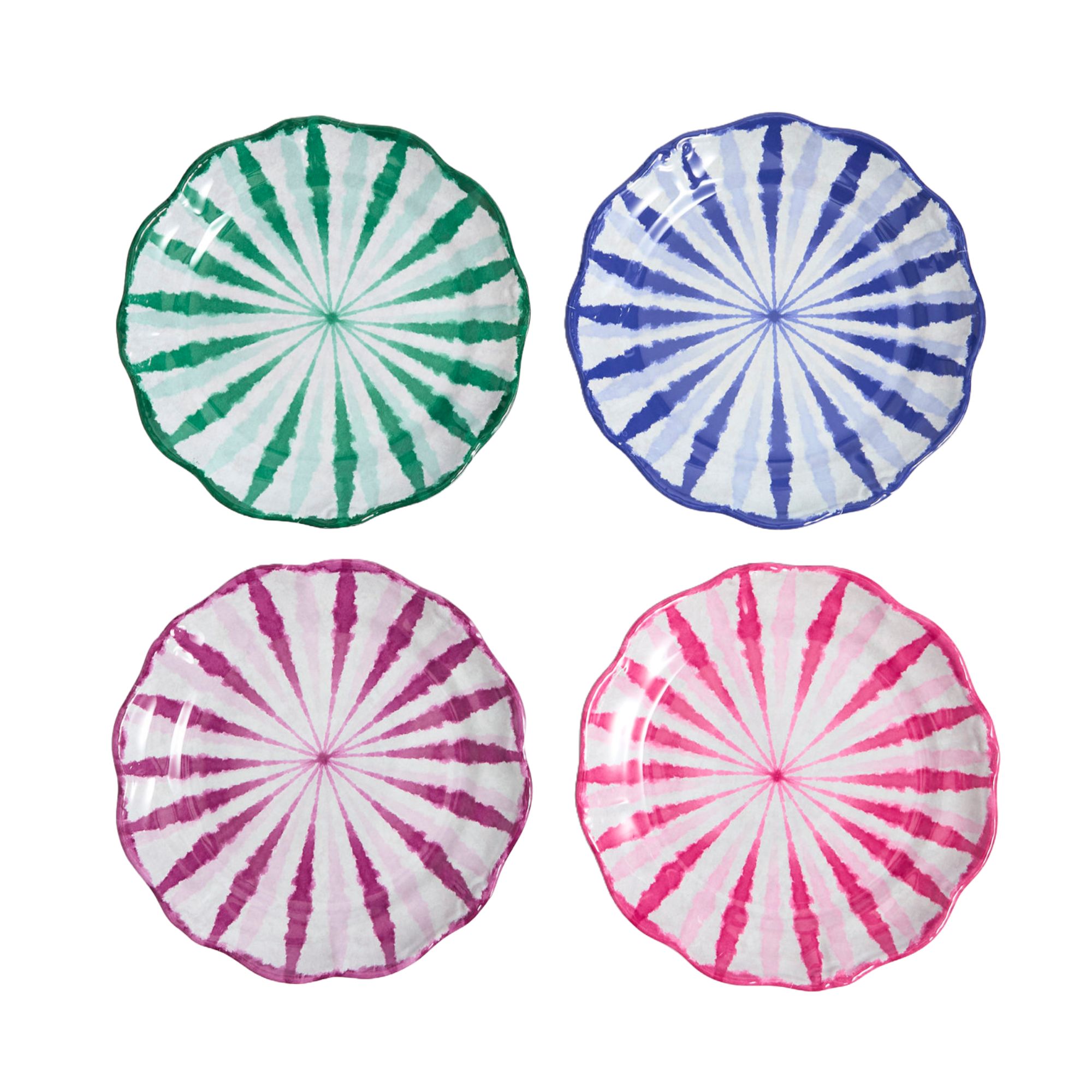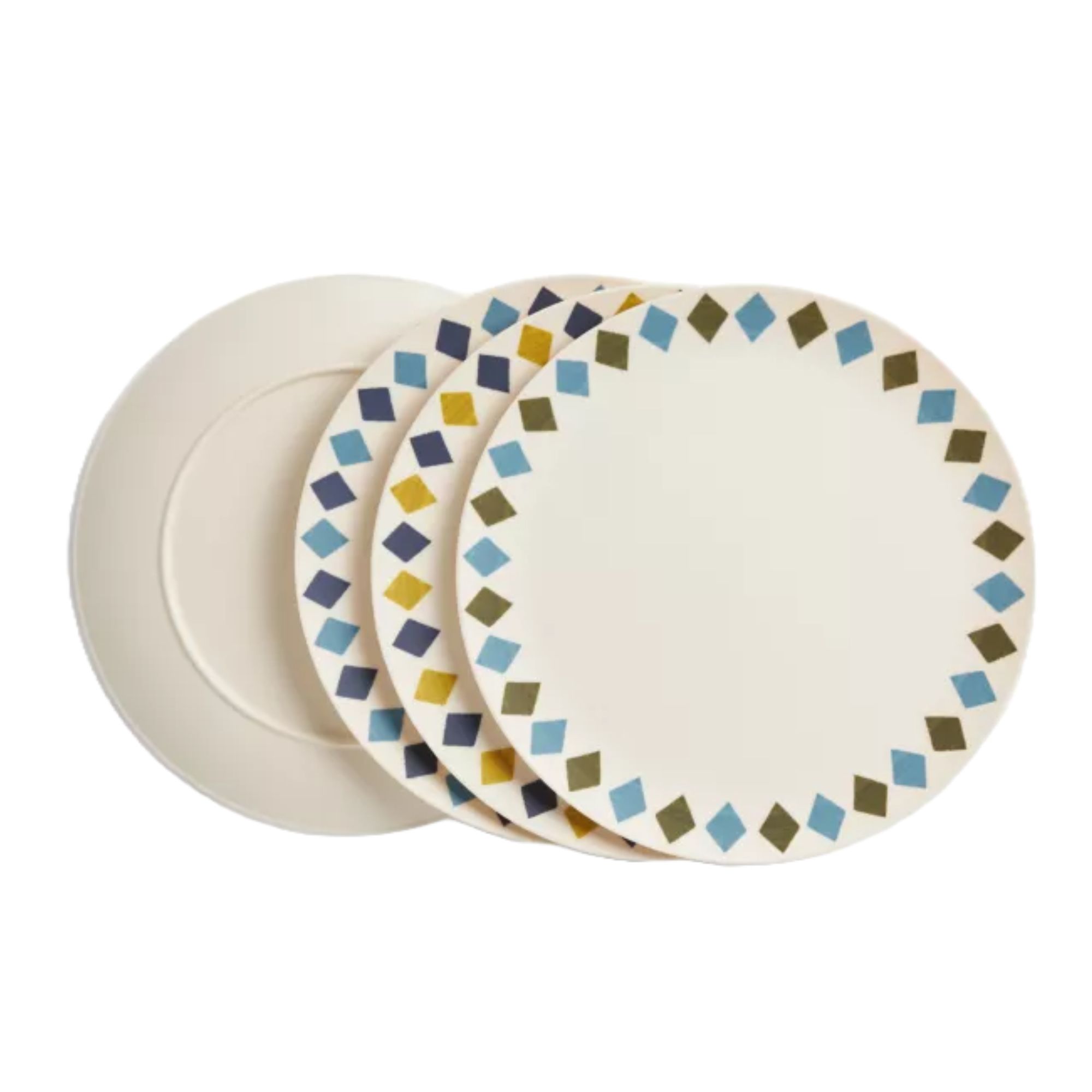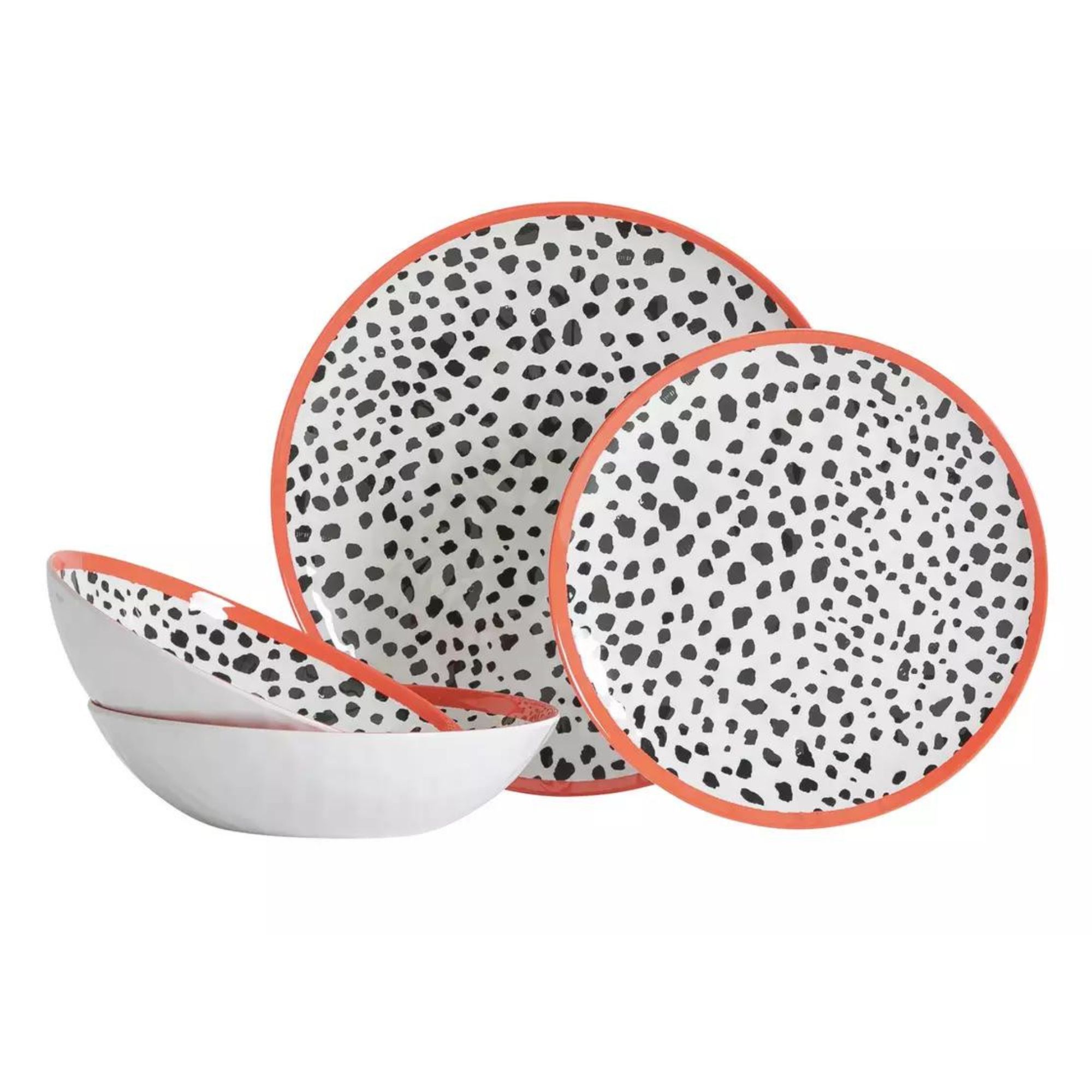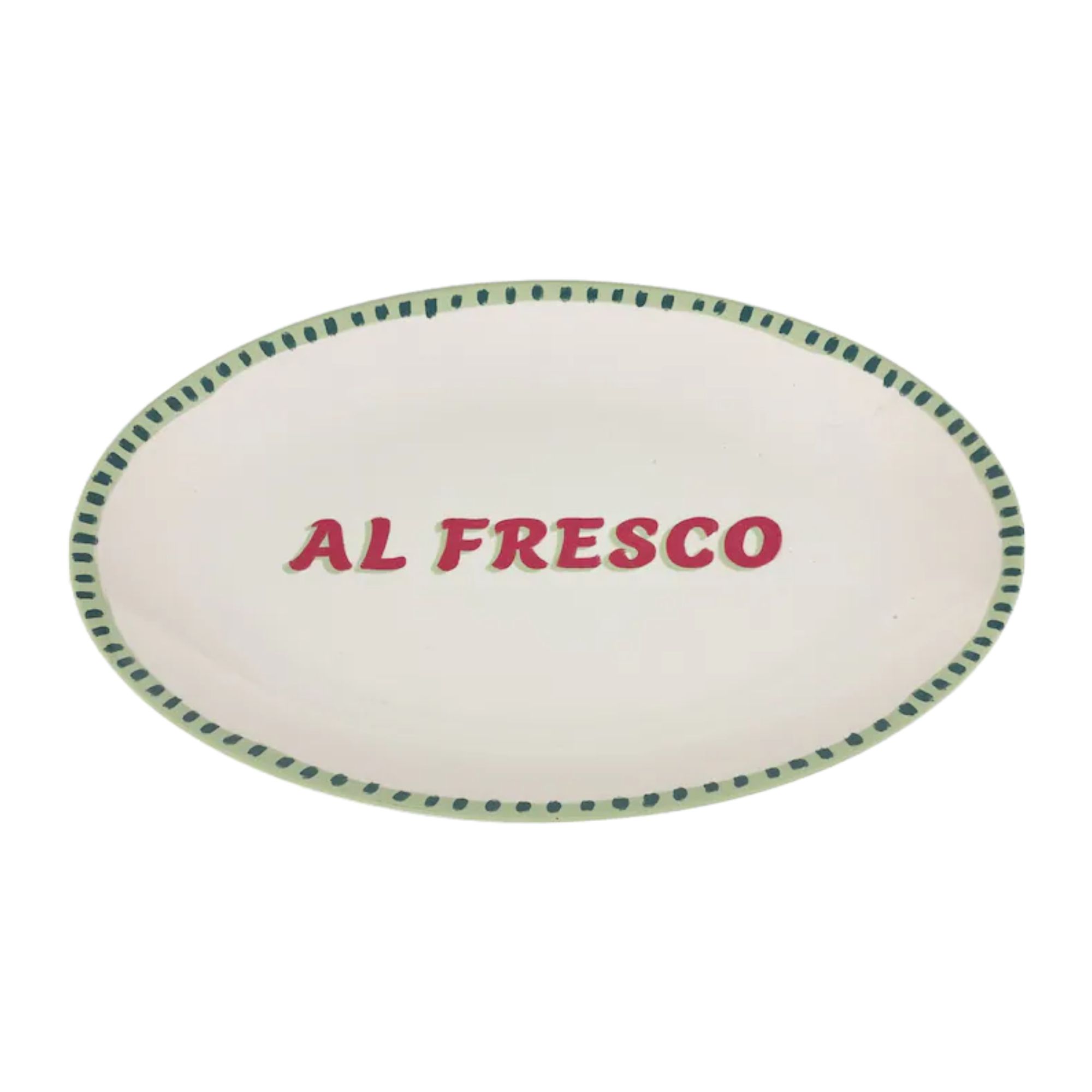Are melamine plates worth it? Here’s why they’re the unconventional hero of outdoor summer tablescapes
You might think they’re old-school, but melamine plates are having their moment

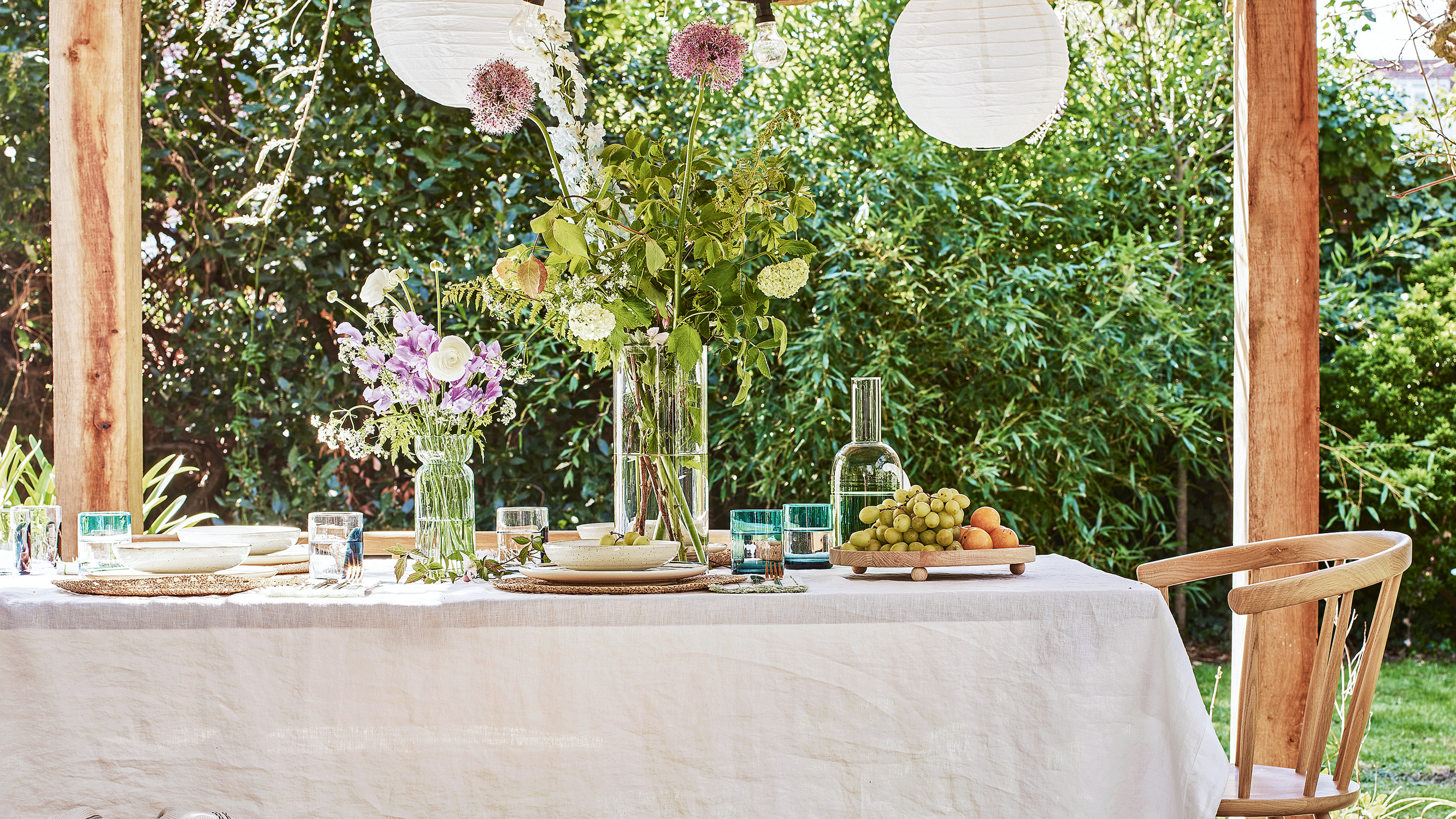
Sign up to our newsletter for style inspiration, real homes, project and garden advice and shopping know-how
You are now subscribed
Your newsletter sign-up was successful
Melamine plates are everywhere right now. But the big question is: Why would you choose outdoor melamine plates when you could simply take your indoor plates… outside? Well, that’s exactly why we’ve made it our mission to determine whether melamine plates are worth it.
Now that the sun is shining, we’re all about that al fresco lifestyle - and we’re not alone. People across the country are spending their days in the garden, sunbathing on their balconies, or heading to the local park to enjoy the warm temperatures. But outdoor living can be hungry work, so you should always have some food and crockery on hand.
And while you could save your cash and stick with the plates already in your kitchen cupboards, there’s a high chance that you’re intrigued by the many melamine plates on the market. After all, they’ve always been considered cheap and tacky - but are melamine plates worth it now that the tide has changed?
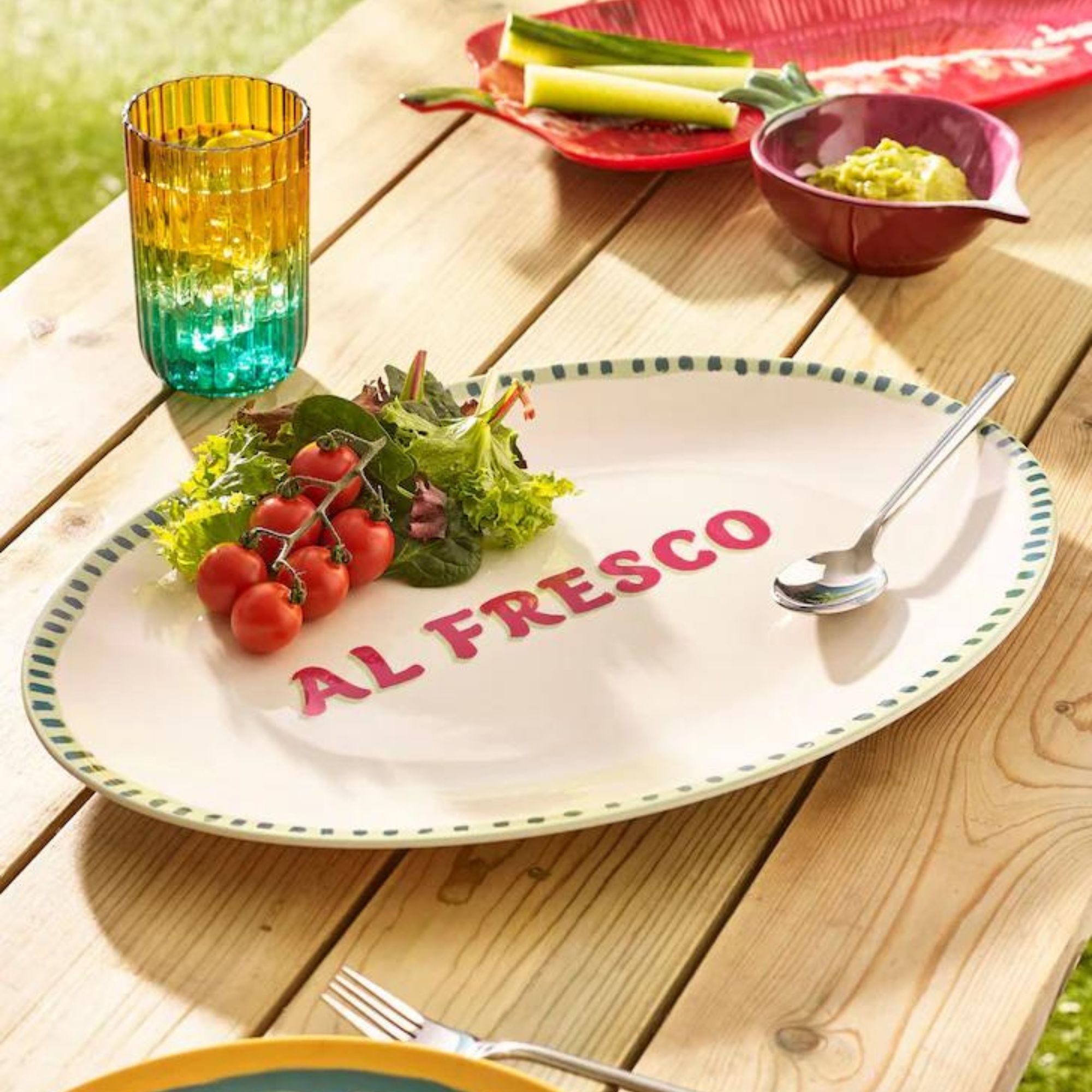
The advantages of melamine plates
1. They’re versatile
Arguably the biggest advantage of melamine plates is that they’re incredibly versatile - much more versatile than your indoor ceramic or stoneware plates, anyway. And while it’s highly unlikely that you’ll take your indoor plates outside the boundaries of your home, the scope for melamine plates is much more exciting.
Whether you want to take one of the best portable BBQs to the beach or you want to take the Gozney Roccbox Dual-Fuel Pizza Oven from John Lewis (dubbed the ‘best portable’ pizza oven in our guide) to the park for a pizza picnic, you can take your melamine plates with you. This is one of the reasons why our Deputy Digital Editor, Rebecca Knight, loves melamine plates.
She says, ‘I used to hate them, but they’ve come a long way over the years. I’ve been really impressed with the Next collection as the platters look so realistic and are great for the new outdoor picnic trend.’
They're also way more substantial than throw-away paper plates, and while they might not be quite as lightweight as paper alternatives, they’re still much lighter than your indoor offerings - and they can be used time after time.
Sign up to our newsletter for style inspiration, real homes, project and garden advice and shopping know-how
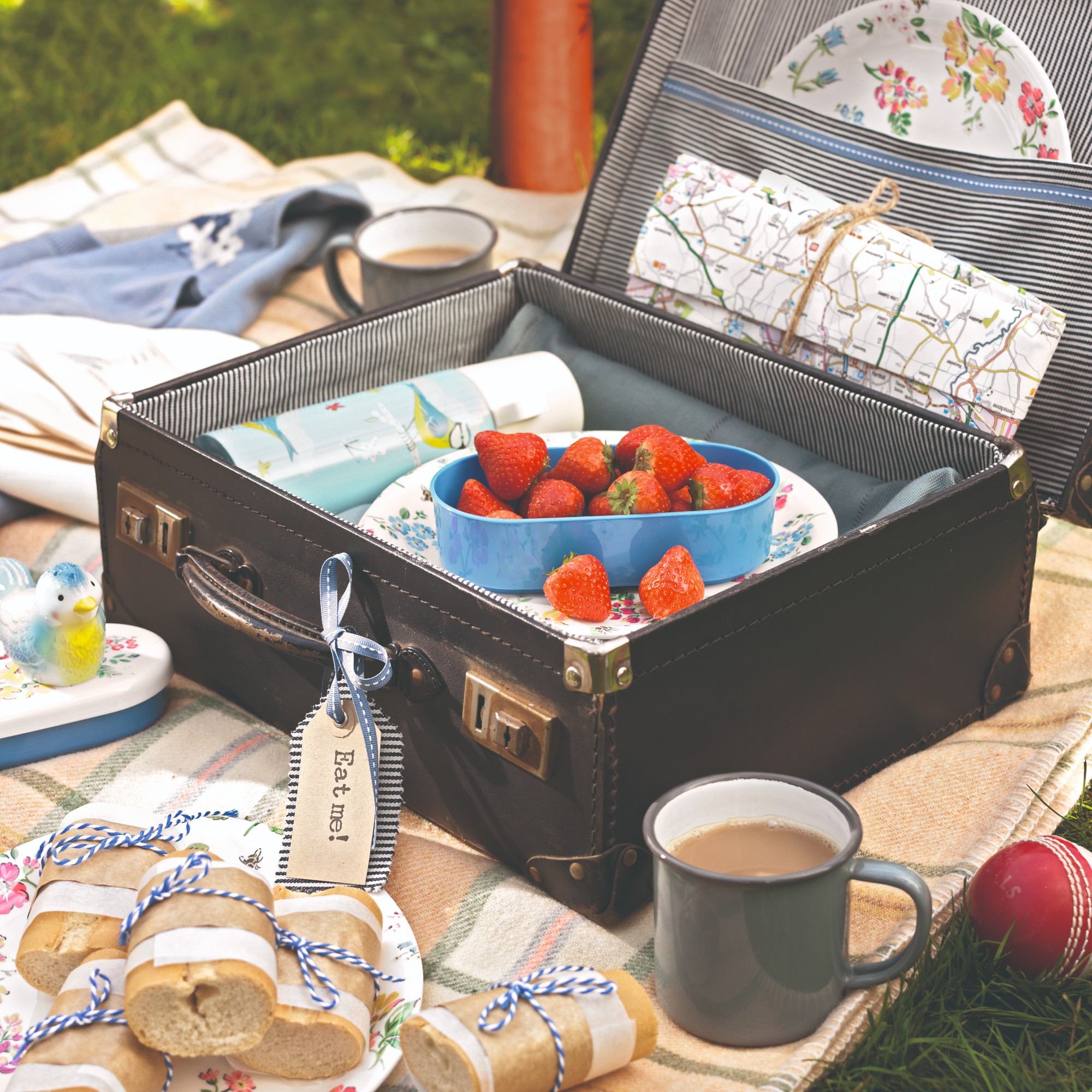
2. They’re incredibly stylish
Let’s be honest; we love an attractive tablescape. And if you pride yourself on being the hostess with the mostest, melamine plates can offer style and substance that you won’t get with indoor ceramic or stoneware plates.
Of course, this might surprise you as melamine plates have often been dubbed cheap and tacky, but the latest iterations of these plastic plates are incredibly cool - and often very quirky.
And while you can get bright and colourful indoor dining sets, most people opt for neutral alternatives that will suit their indoor decor. If you were to then take them outside as part of your outdoor dining ideas, you have a rather boring tablescape.
With melamine plates, however, you can go wild by mixing and matching different colours, patterns, and shapes depending on your theme and mood.
Tablescape and events expert Lavina Stewart-Brown explains, 'You can complement the melamine plates with a cohesive tablecloth in keeping with the garden and floral backdrops, as well as place them on a nice table mat to bring depth to the tablescape.'
'For garden dining at home, I would recommend opting for a nice matching polycarbonate glass. Summer is definitely a time to be bold and adventurous with your colours and styles!'
3. They’re extremely affordable
If you compare the price of a ceramic or stoneware dinner set to the price of a melamine dinner set, you’ll see that there’s a major discrepancy. As melamine is a much cheaper material, you can buy plates and sets for a fraction of the price.
This makes them even more attractive to potential buyers, as you can stock your whole outdoor kitchen with its own dining set for next to nothing.
As they’re cheaper, you can also buy a few different melamine sets - and maybe even buy different sizes. So, you can have a bright summery set for bank holiday BBQs and then switch to more muted tones for cosy autumn nights under one of the best patio heaters.
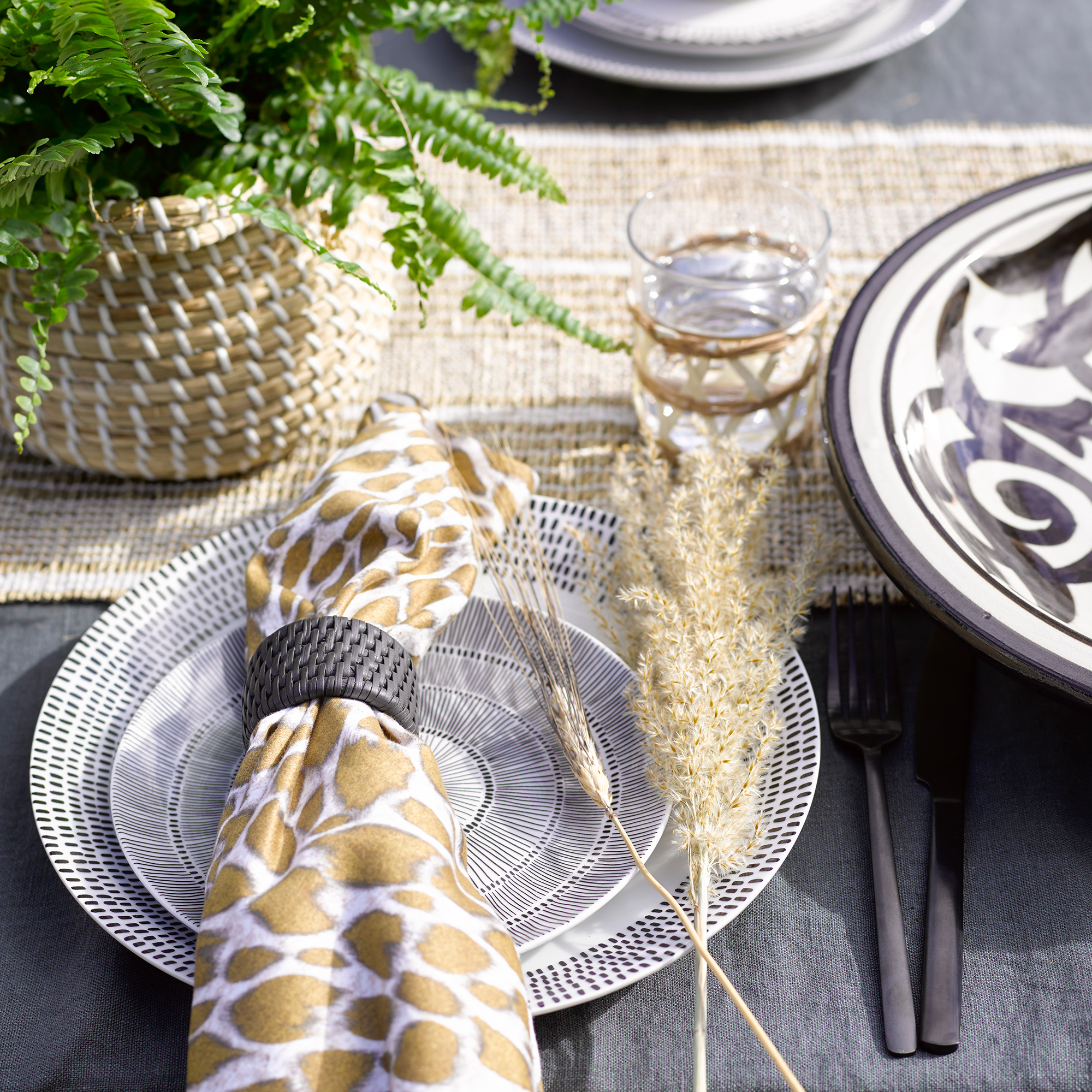
4. They won’t break
Whether you have clumsy kids or you know your Uncle Bill always goes a little too hard on the Pimms during your annual garden party, melamine plates will ensure that the festivities go off without a hitch. By that, we mean that there will be no breakages.
Nicola Rodriguez, AKA @essexhousedolly explains, ‘The resin in the melamine makes it ideal for outdoor use where it is durable and shatter resistant. Fetching and carrying plates from your kitchen to your garden can be fatal, so using these is so much better.’
Yes, as melamine is a type of plastic, it’s highly unlikely that anyone in your family or friend circle will be able to break them - no matter if they’re accidentally dropped on the floor or thrown across the garden like a frisbee. The same can’t be said if you use your ceramic plates from inside, though.
The disadvantages of melamine plates
1. They can stain
If you’ve ever tried to clean spaghetti bolognese sauce from a Tupperware container, you’ll know just how soul-crushing this can be. And for some reason, plastic material seems to soak up the colour of food more than ceramic or stoneware.
This is something you should consider if you’re wondering if melamine plates are worth it, as you may spend more of your time trying to wash them than you’d like.
However, most melamine plates are dishwasher-safe, so you can also let the dishwasher do most of the hard work.
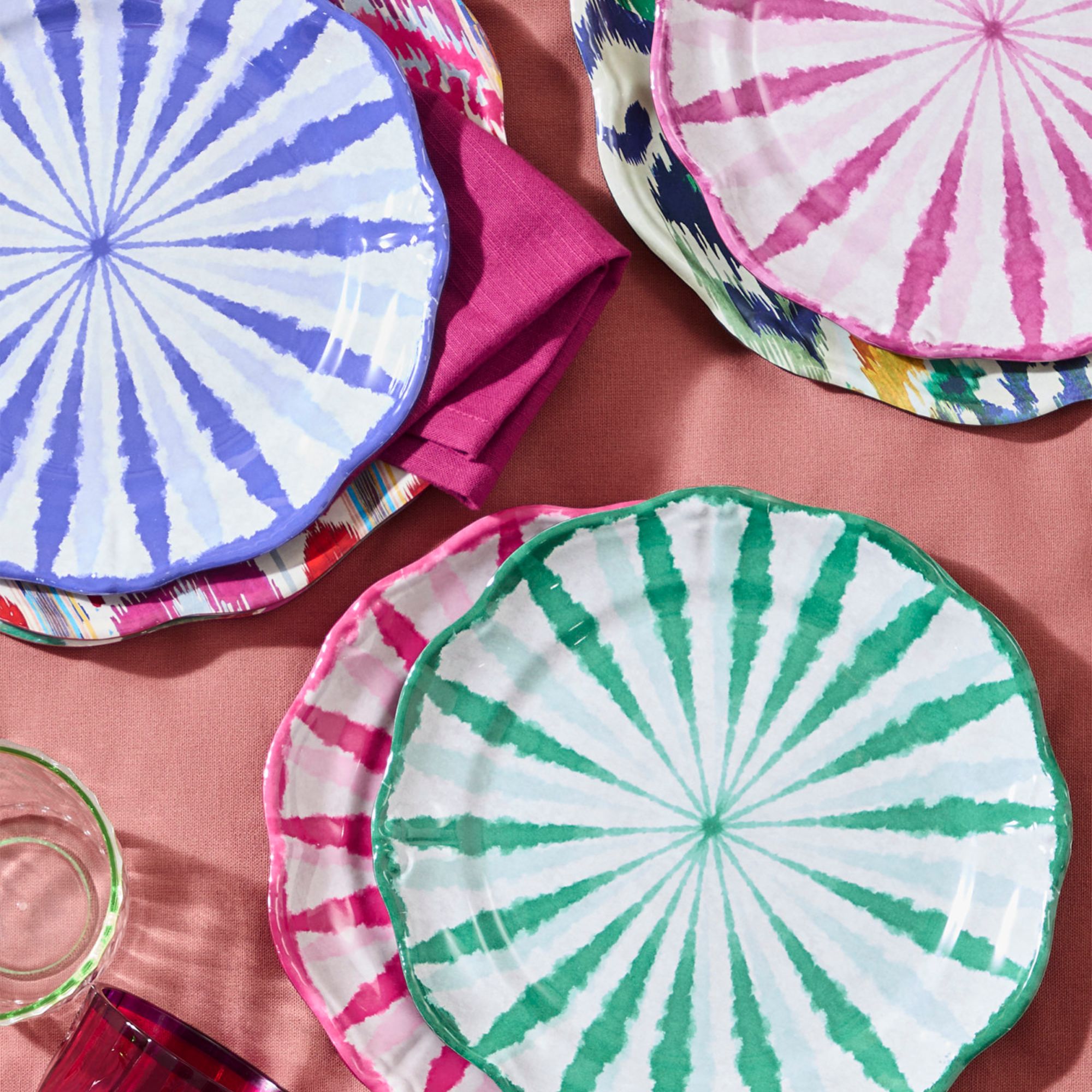
2. They’re not hugely durable
While melamine plates are ideal for outdoor use, it’s also worth noting that melamine plates don’t cope with the heat as well as ceramic or stoneware plates. You might even notice this when you hold a plate that’s full of hot food.
However, the large majority of melamine plates on the market are safe unless exposed to temperatures above 100 degrees Celsius. In fact, John Lewis warns, ‘It's important to note that melamine should not be used in the microwave as it can potentially leach harmful chemicals into food when exposed to high temperatures.’
But unless you plan on putting them in the microwave or leaving them too close to the BBQ, melamine plates are perfectly safe to use.
Alongside this, you also need to be aware that melamine plates can become scratched over time as the soft plastic can struggle with the scrape of knives and forks. To prevent this from happening, avoid using overly sharp knives on the plates.
The best melamine plates - our top picks
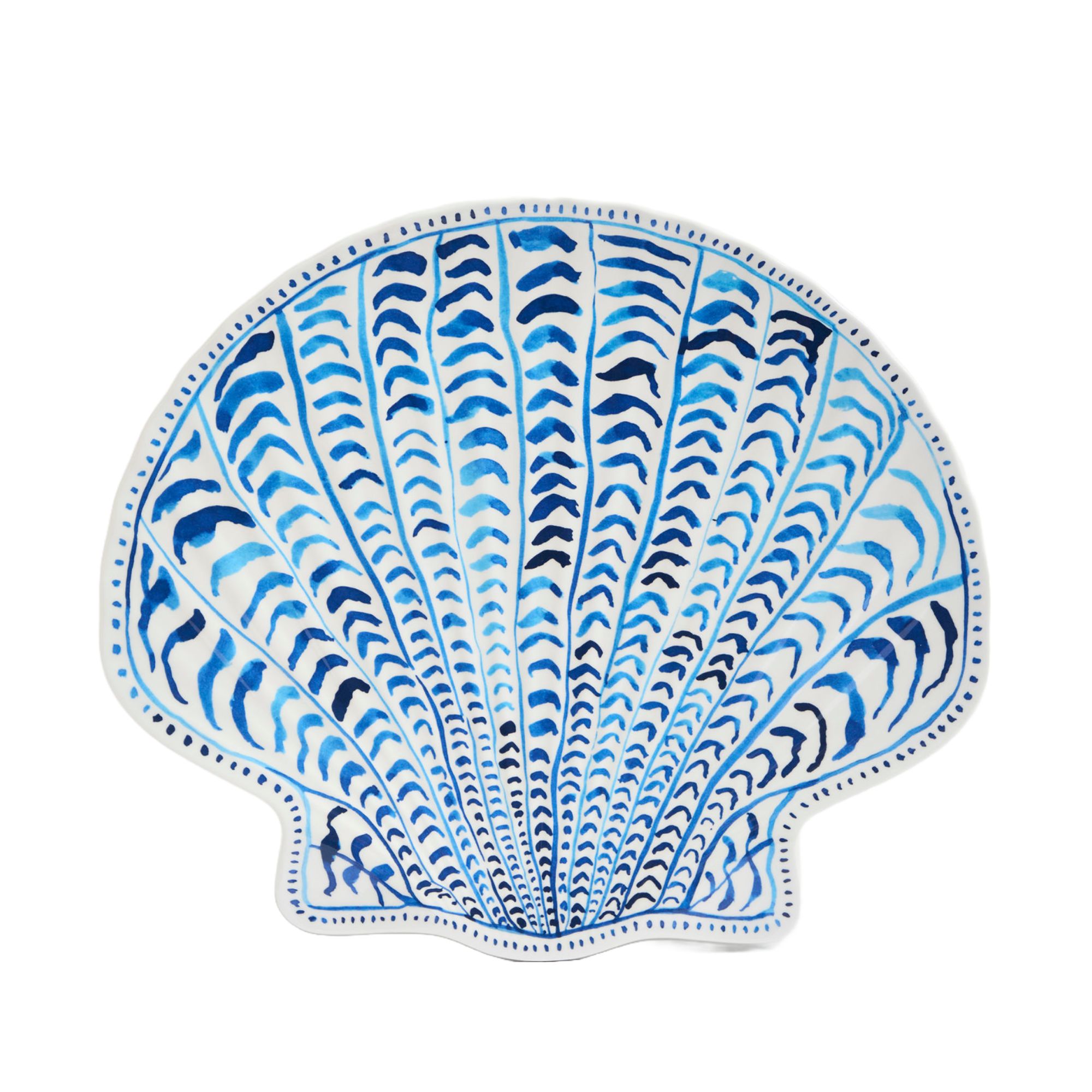
If you're still embracing your coastal cowgirl era, this melamine shell platter is everything you need and more. It's also completely dishwasher-safe.
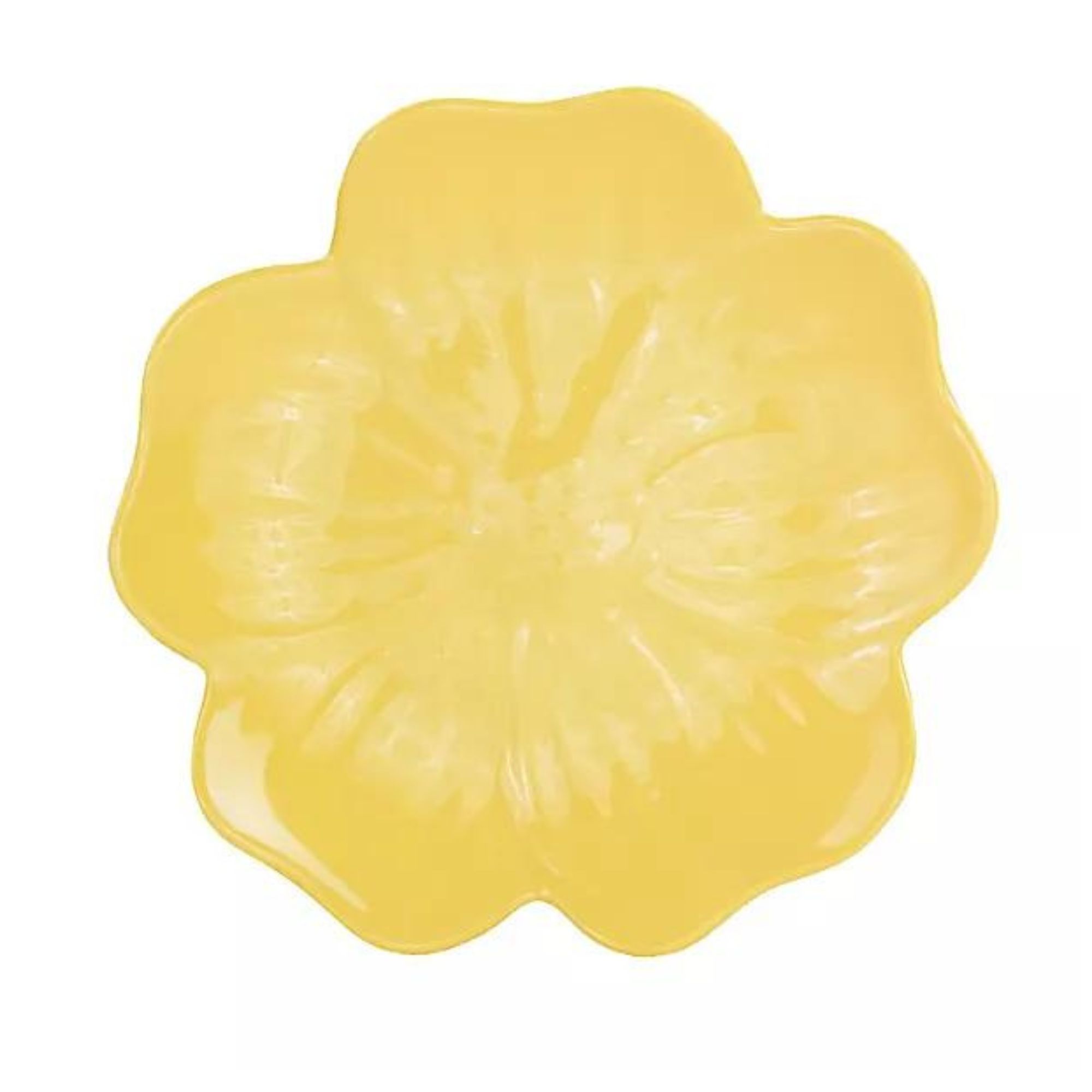
We're obsessed with anything flower-shaped (like the Le Creuset petal casserole dish), so we absolutely love this Lakeland offering. It also comes in a blue colourway.
FAQs
Can you use a knife on melamine plates?
Yes, you can use knives on melamine plates, but you also need to be careful. While you should have no issues with lightly serrated knives, sharper knives may scratch the surface of the melamine if you press or scrape too hard.
Because of this, it’s best to be wary when using sharper knives on melamine plates and be prepared for a few scratches here and there.
How long do melamine plates last?
Melamine plates will typically last between 2-5 years, depending on how you treat them. However, it's important to note that they can last much longer if you only use them occasionally and take good care of them.
To ensure they last as long as possible, keep them clean, stack them neatly, keep them out of full sun, and keep them away from high temperatures.
So, will you be adding melamine plates to your outdoor tablescapes this summer?

Lauren Bradbury has been the Content Editor for the House Manual section since January 2025 but worked with the team as a freelancer for a year and a half before that. She graduated with a Bachelor’s degree in English and Creative Writing from the University of Chichester in 2016. Then, she dipped her toe into the world of content writing, primarily focusing on home content. After years of agency work, she decided to take the plunge and become a full-time freelancer for online publications, including Real Homes and Ideal Home, before taking on this permanent role. Now, she spends her days searching for the best decluttering and cleaning hacks and creating handy how-to guides for homeowners and renters alike, as well as testing vacuums as part of her role as the Ideal Home Certified Expert in Training on Vacuums, having spent over 110 hours testing different vacuum models to date!
